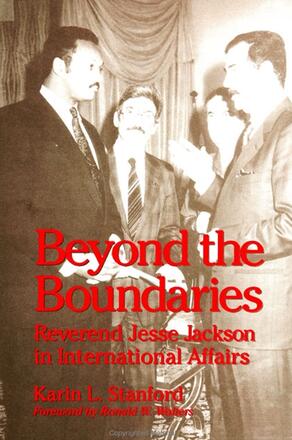
Beyond the Boundaries
Reverend Jesse Jackson in International Affairs
Alternative formats available from:
This first book-length study of Jesse Jackson's international activities places his activism abroad in theoretical and historical perspective and shows how it belongs to a tradition of U.S. citizen diplomacy as old as the Republic.
Description
Beyond the Boundaries is the first book-length study of Jesse Jackson's international activities and foreign-policy agenda. It locates Jackson's efforts within the context of citizen diplomacy generally and African-American involvement in international affairs particularly. Jackson's expeditions to Syria, Central America, and Cuba, during his 1984 presidential election bid, and his 1986 trip to Southern Africa are discussed in detail. Drawing on interviews, 1984 Jackson campaign documents, and press accounts, Karin L. Stanford shows that Jackson's international forays are not unique or unprecedented but belong to a tradition of citizen diplomacy as old as the Republic.
Karin L. Stanford is Assistant Professor of Political Science and African American Studies at the University of Georgia.
Reviews
"This is an excellent book, one that attests to the brilliant work of the author. What I like most about it is that it takes the paradigm of 'citizen diplomacy' and demonstrates theoretically how this study of Jesse Jackson exemplifies the paradigm. It really is a tour de force." -- Elliott P. Skinner, Columbia University, former U.S. Ambassador to Upper Volta/Burkina Faso
"This is a well-rounded and thoughtful work in an area where there are few guideposts. Because there is very little scholarship on African Americans in foreign policy and virtually nothing on citizen diplomacy, it fills a large gap. It is an important addition to the literature." --Charles Henry, University of California, Berkeley
"This book addresses a major issue of growing importance for America's role in the world--the huge expansion of direct citizen involvement in international affairs, beyond the confines of the U.S. Department of State, and beyond the narrow social base of main line international organizations like the Council on Foreign Relations. While the author captures these new developments, she also identifies long-term historical trends dating back to the 1770s and relates them to current conditions, thereby providing a good sense of context in two ways: historical context over the centuries and racial context."-- Ernest J. Wilson III, University of Maryland, College Park